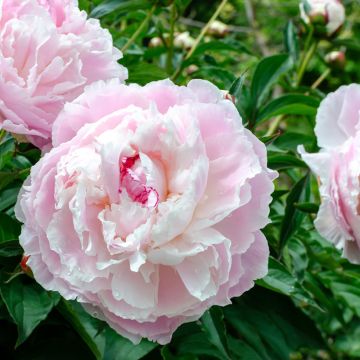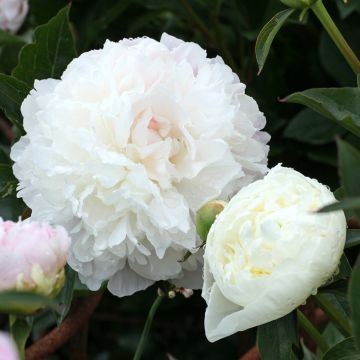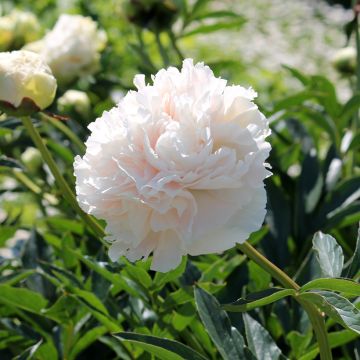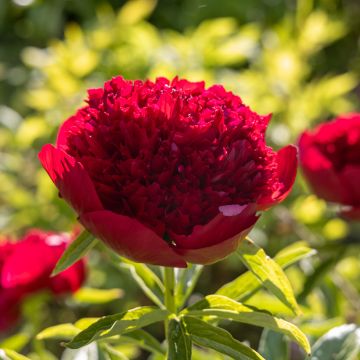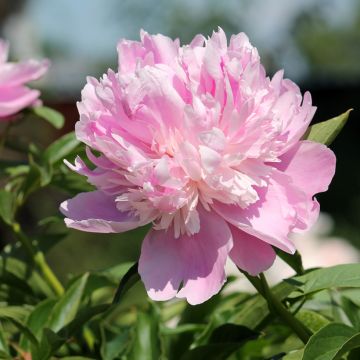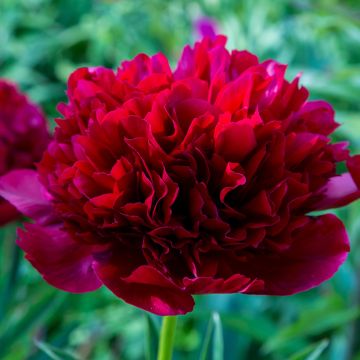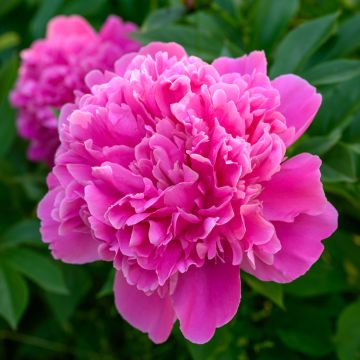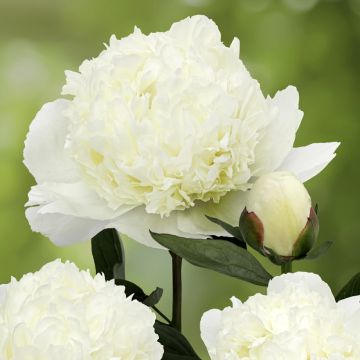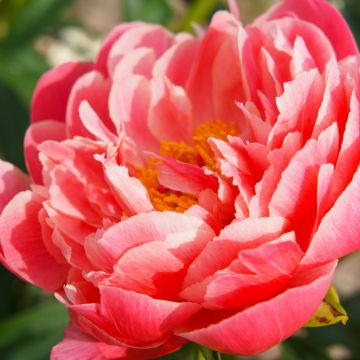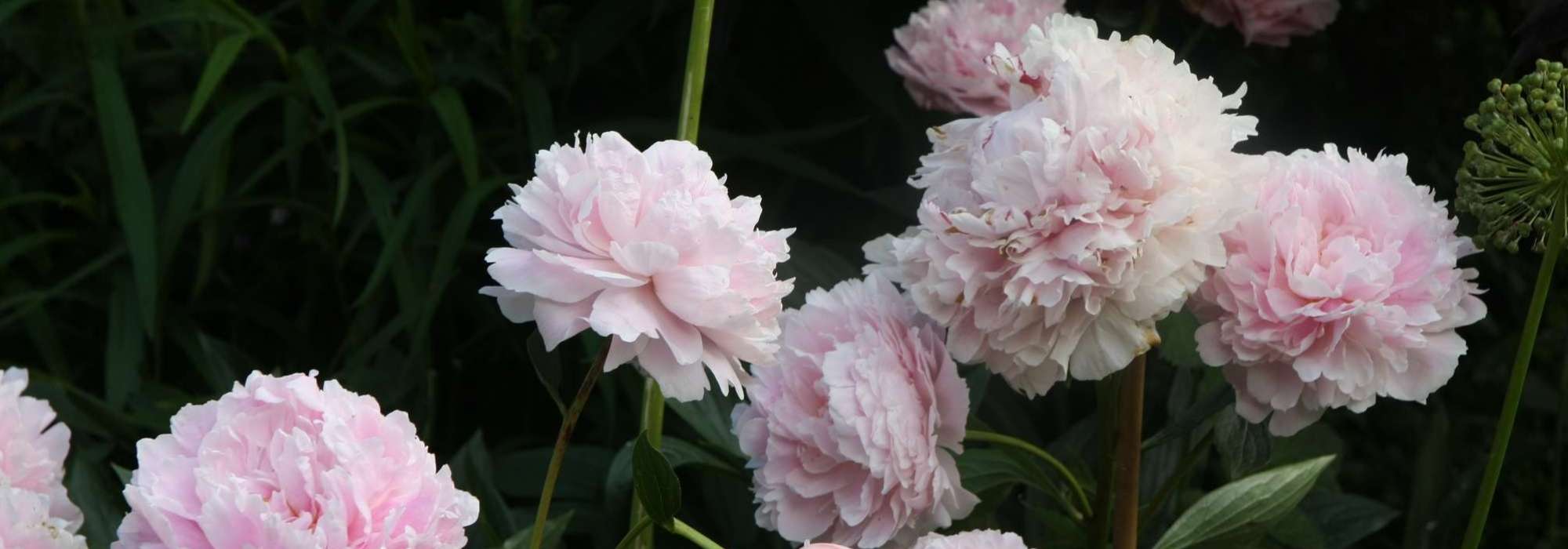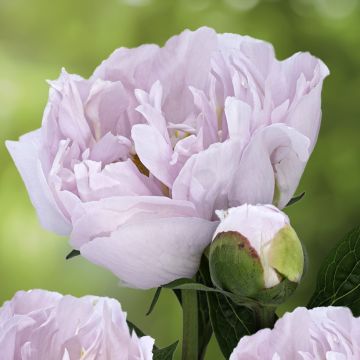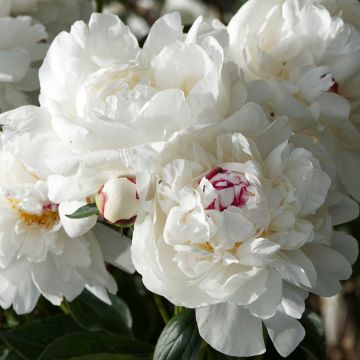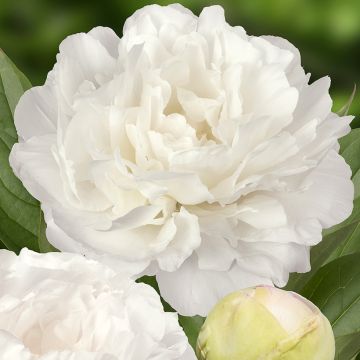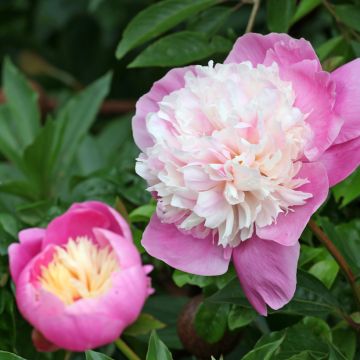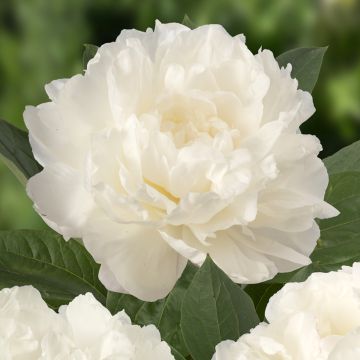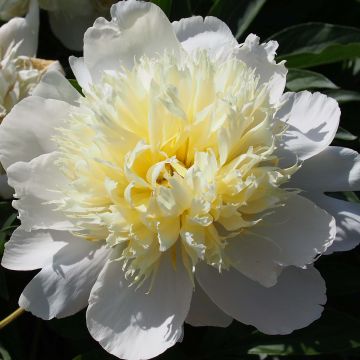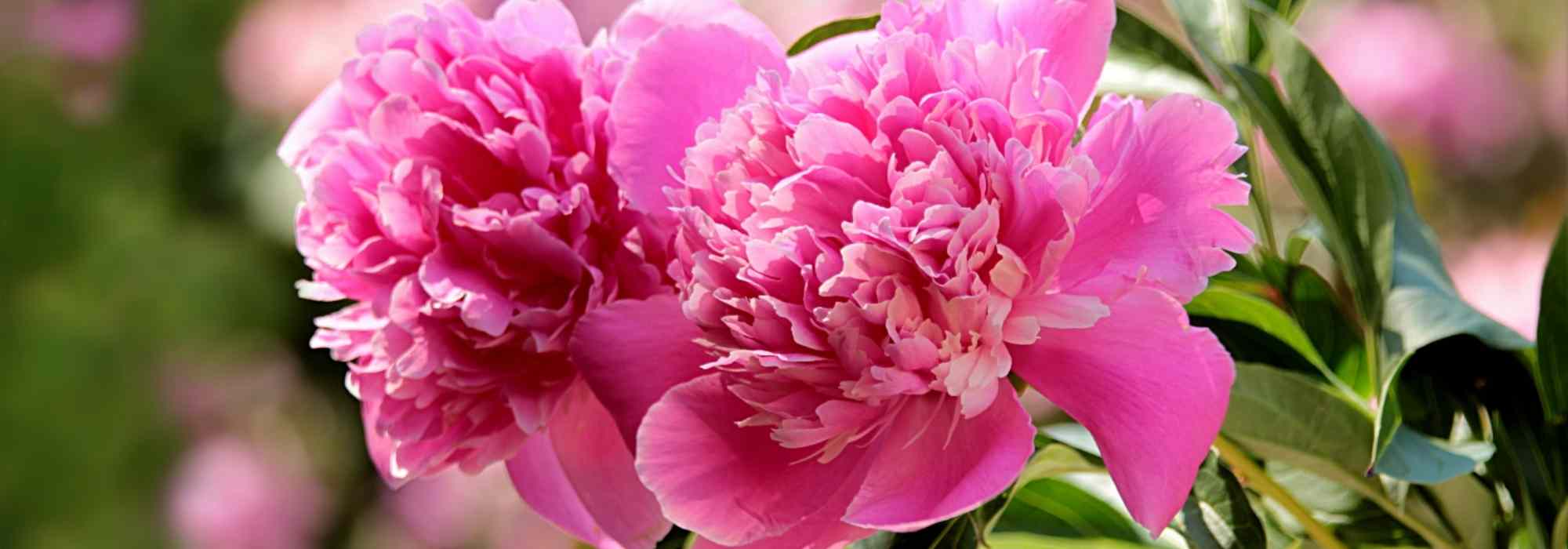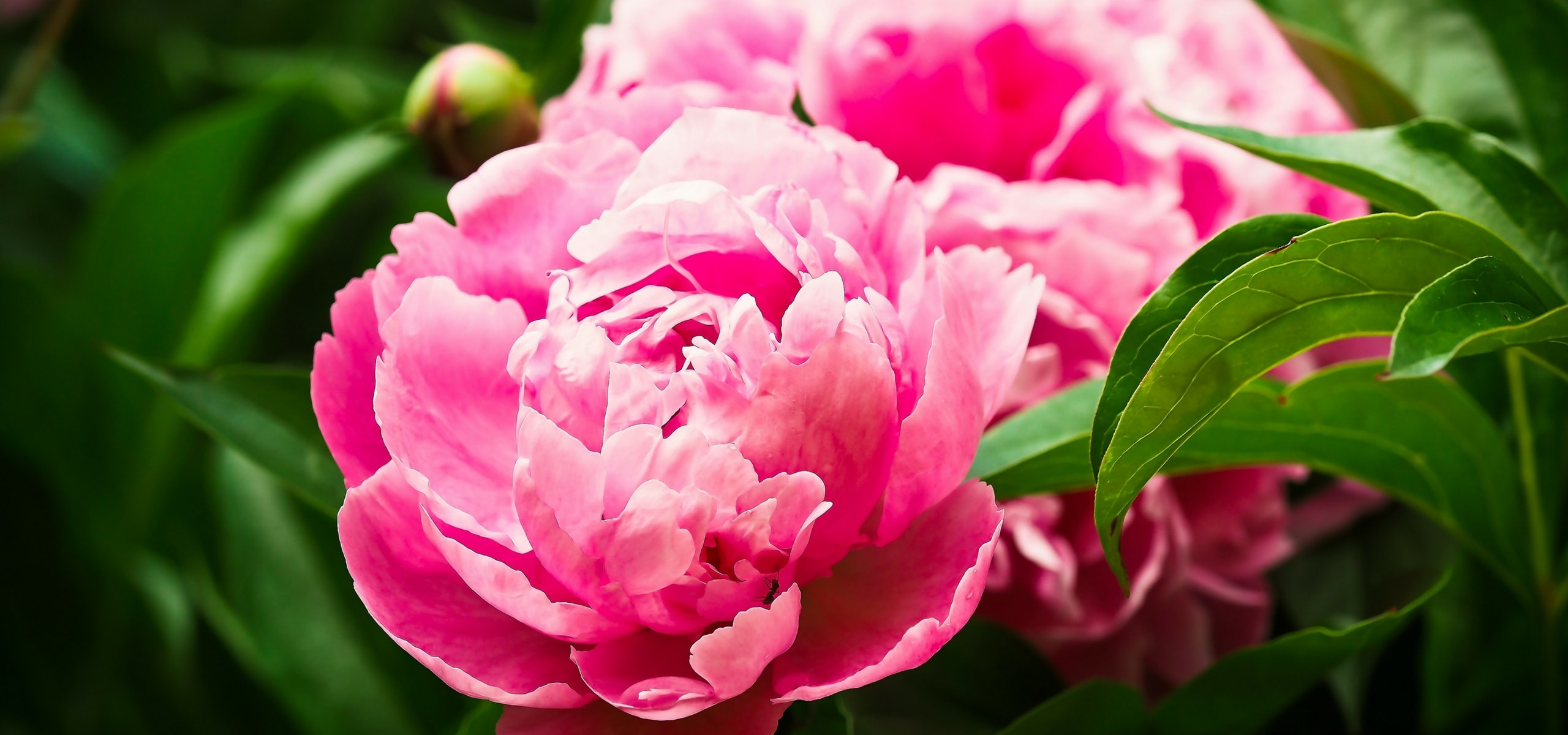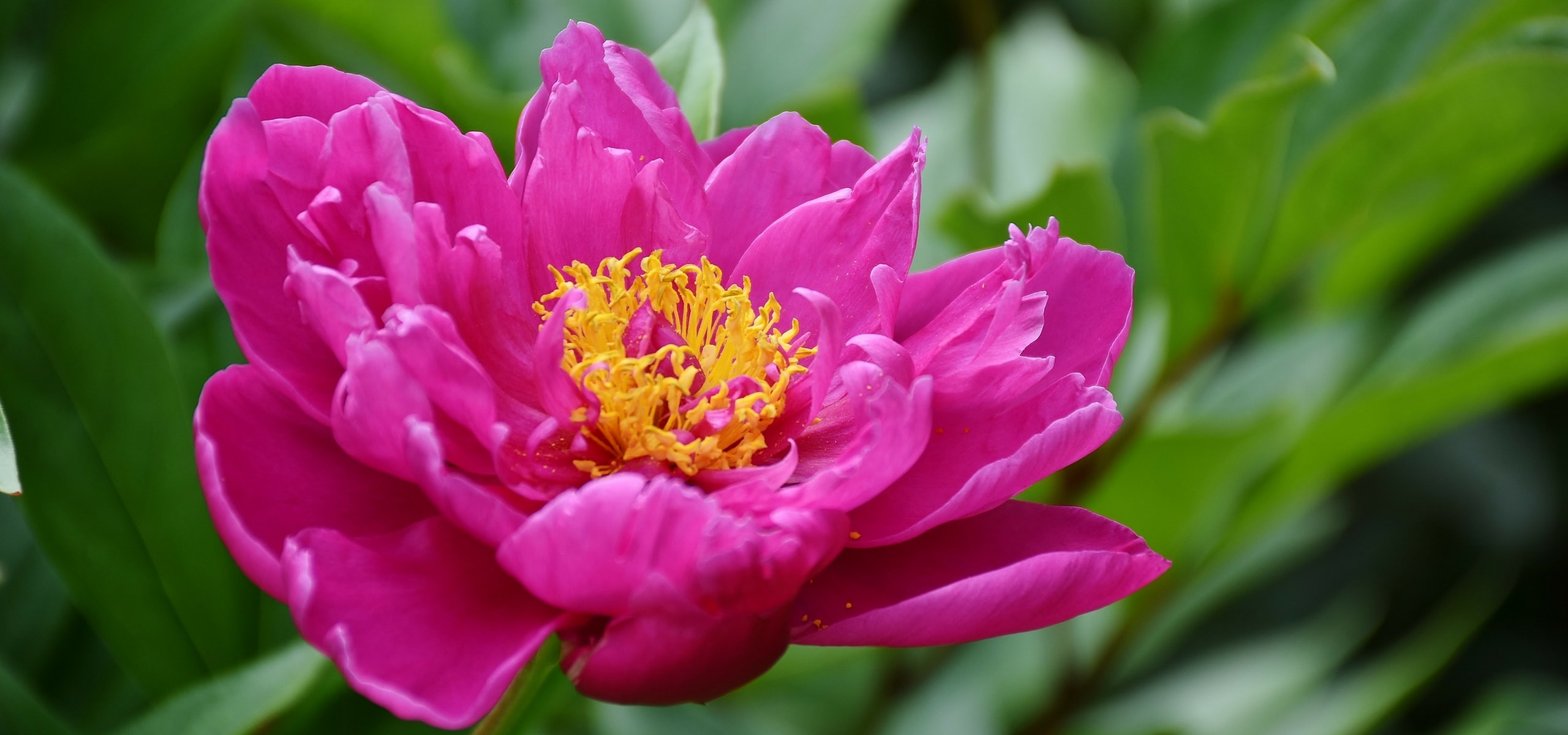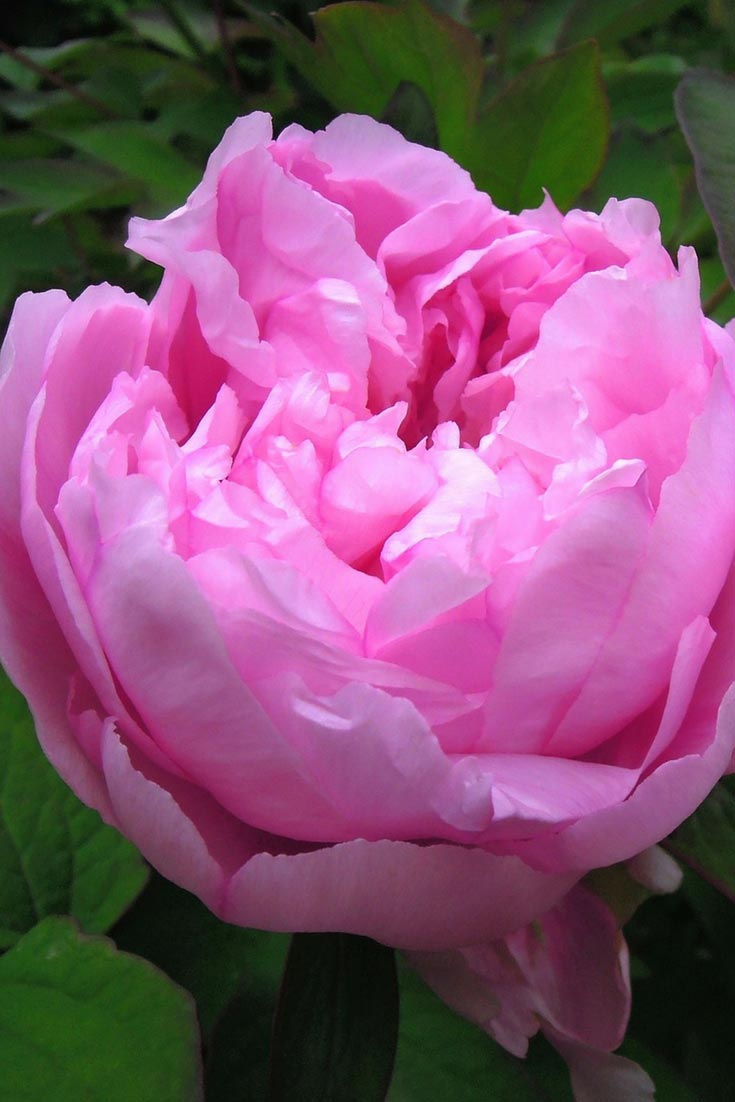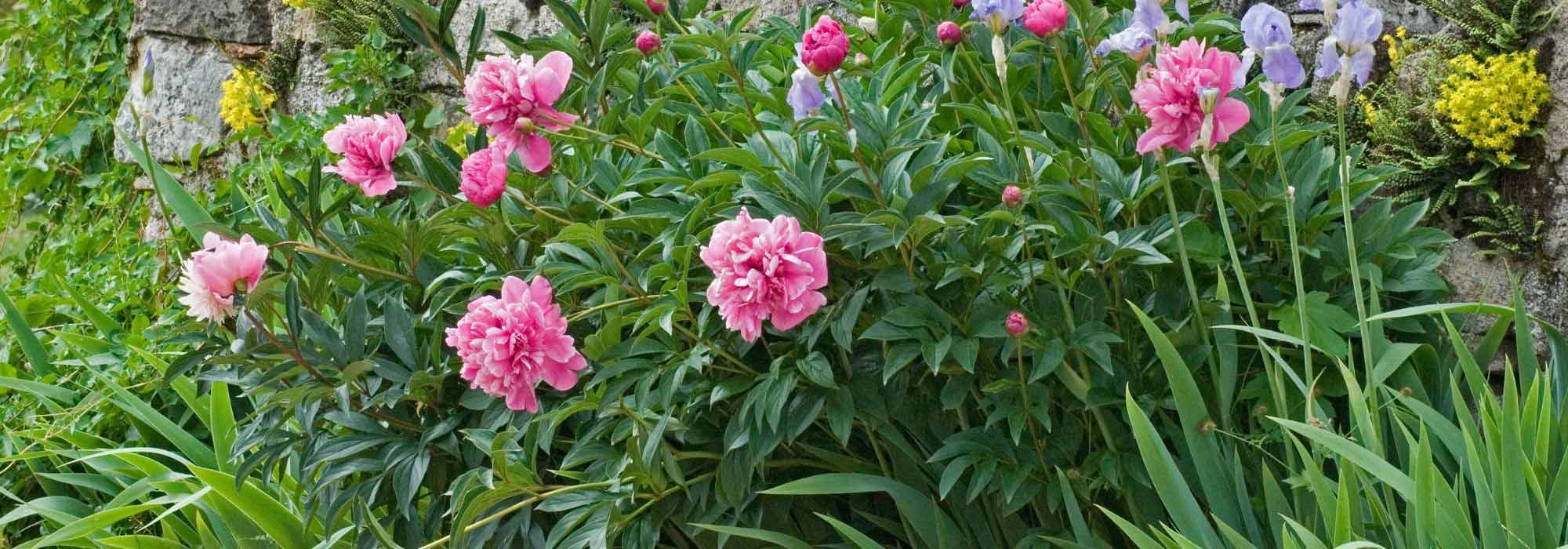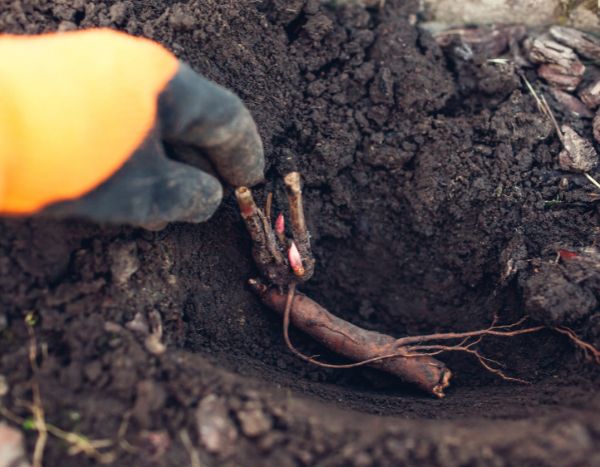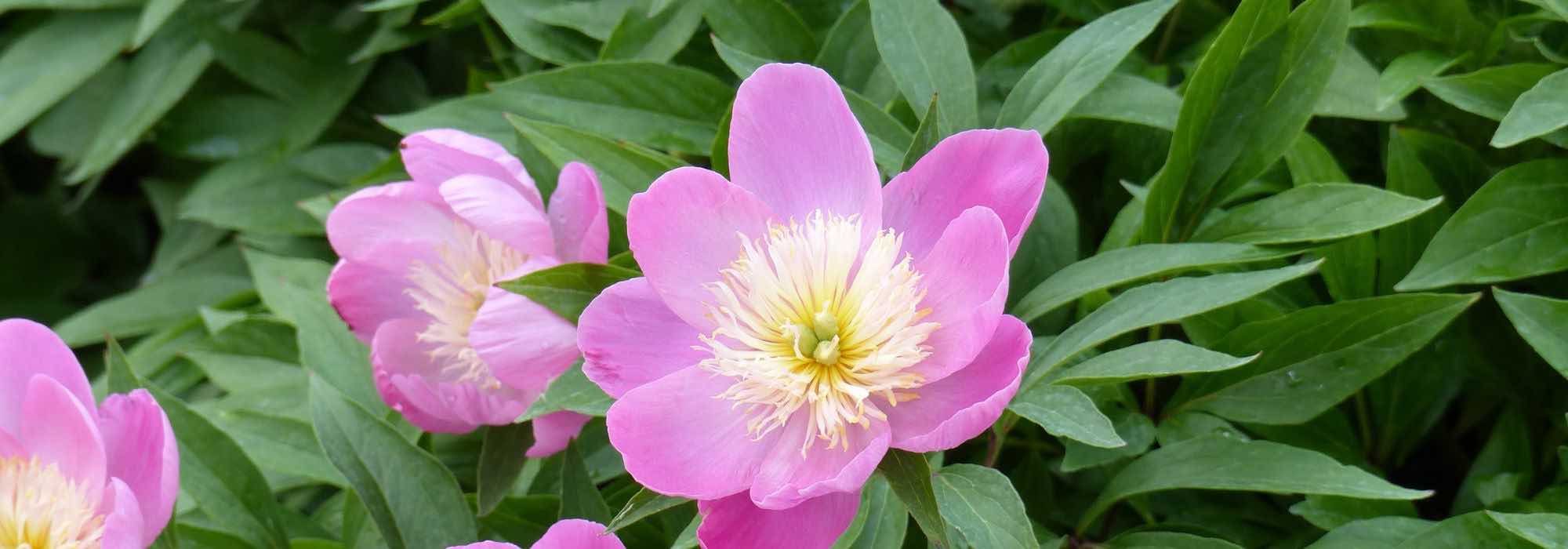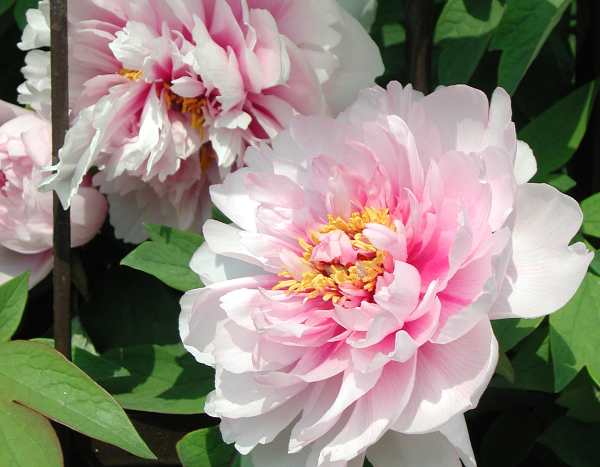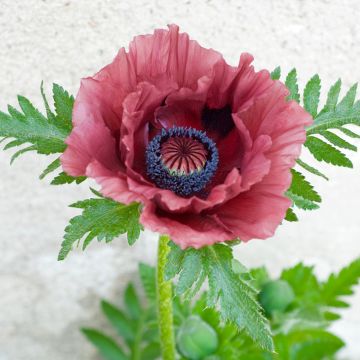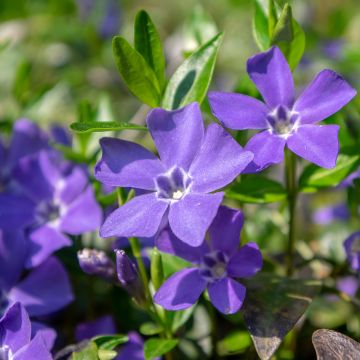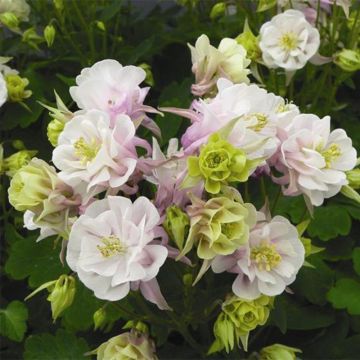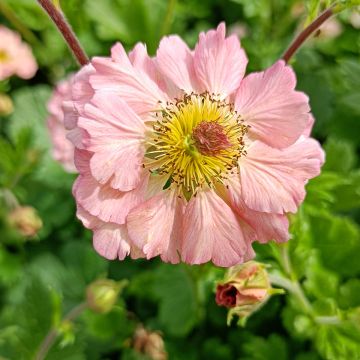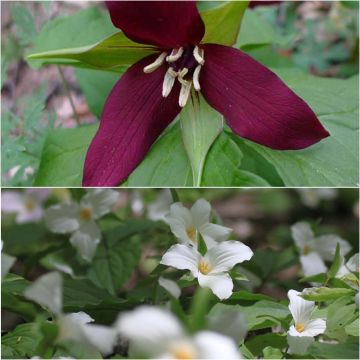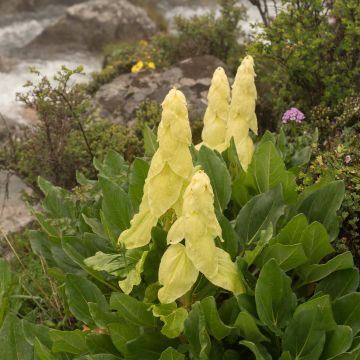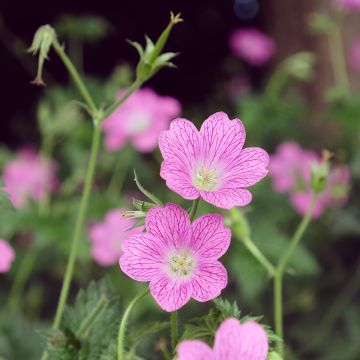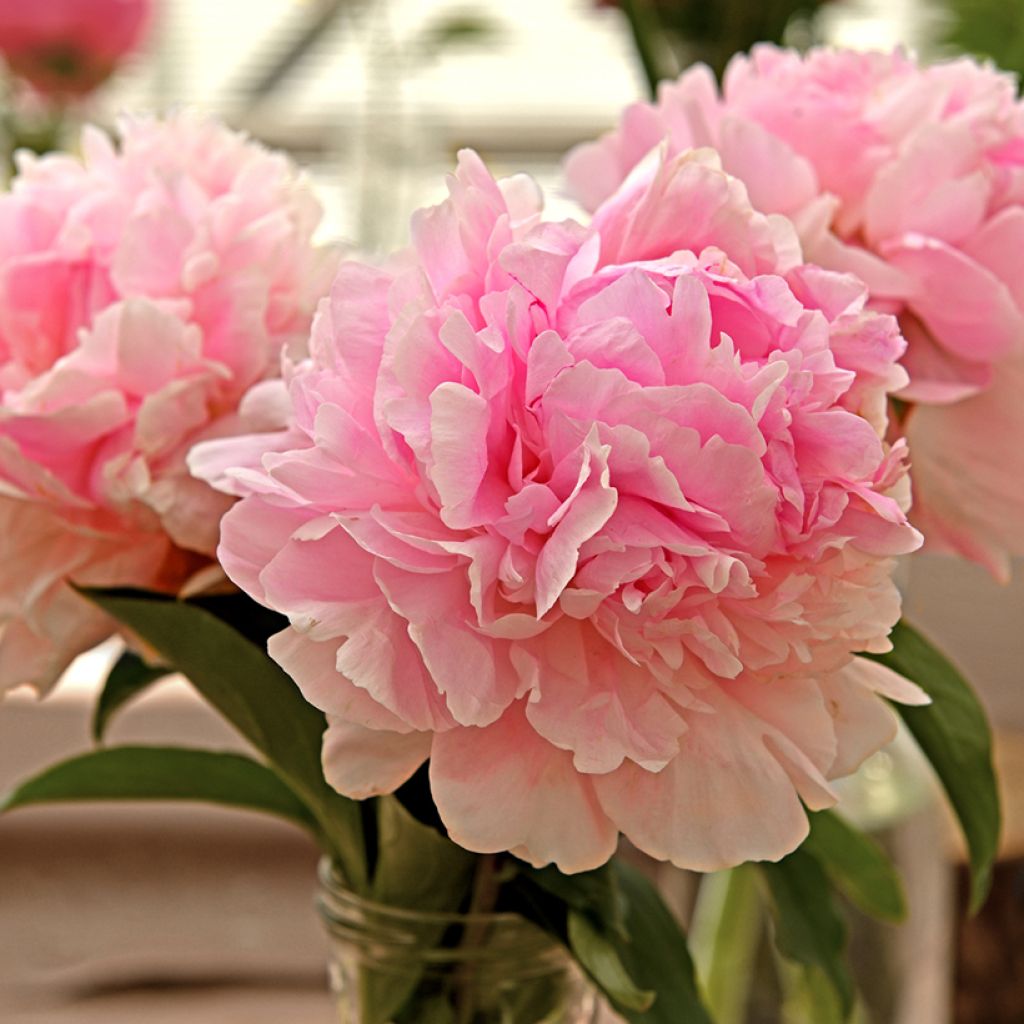

Paeonia lactiflora Lady Orchid
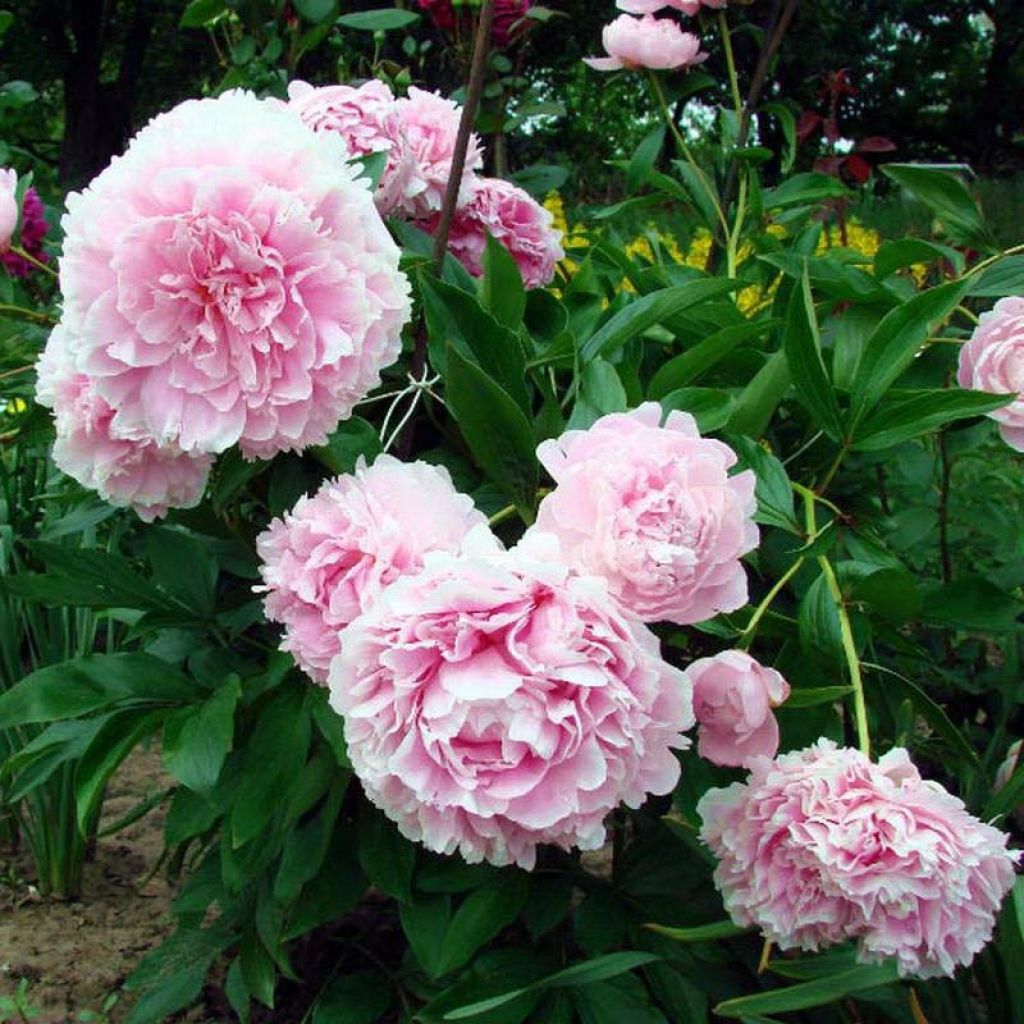

Paeonia lactiflora Lady Orchid
Paeonia lactiflora Lady Orchid
Paeonia x lactiflora Lady Orchid
Chinese Peony, Common Garden Peony
3 feet of peony ordered, received promptly, packaging and condition of the tillers very good. Now we just have to wait for these ladies to settle in and flower!
Christelle, 23/11/2022
Special offer!
Receive a €20 voucher for any order over €90 (excluding delivery costs, credit notes, and plastic-free options)!
1- Add your favorite plants to your cart.
2- Once you have reached €90, confirm your order (you can even choose the delivery date!).
3- As soon as your order is shipped, you will receive an email containing your voucher code, valid for 3 months (90 days).
Your voucher is unique and can only be used once, for any order with a minimum value of €20, excluding delivery costs.
Can be combined with other current offers, non-divisible and non-refundable.
Why not try an alternative variety in stock?
View all →This plant carries a 12 months recovery warranty
More information
We guarantee the quality of our plants for a full growing cycle, and will replace at our expense any plant that fails to recover under normal climatic and planting conditions.

Does this plant fit my garden?
Set up your Plantfit profile →
Description
The Peony 'Lady Orchid' blooms like an old rose, in a carefully arranged pompom. Its double flowers, of a beautiful size, light pink with lavender highlights, often bloom in the middle or towards the end of the peony season, above a clump of vibrant green foliage that holds up well. Robust and faithful, herbaceous peonies sometimes take a little time to establish themselves, but they grow year after year and can live well over 50 years, even surviving the one who planted them.
Chinese herbaceous peonies are mainly derived from Paeonia lactiflora, a perennial herbaceous plant native to central and eastern Asia (from eastern Tibet, northern China, to eastern Siberia), where it naturally grows in woods and meadows. This plant belongs to the Ranunculaceae or Paeoniaceae family.
The Lady Orchid variety is a cultivar obtained in 1942 by Myron D. Bigger. The plant forms a bushy herbaceous clump from spring onwards, reaching 80 to 90 cm (32 to 35in) in all directions. Its large flowers, 12-14 cm (5-6in) in diameter, appear from the second half of May, earlier or later depending on the climate, and last for about two weeks. They are born as a large pink bud, then open up into a double and globular cup, with petals arranged in a concentric and regular manner, like cabbage roses. This variety is scentless. The young, purple and shiny foliage unfolds into large, vibrant green, deeply cut and firm leaves. They are carried on a petiole that divides into 3, with lanceolate or ovate-lanceolate segments. The leaflets are entire or sometimes lobed. They disappear in winter, while the buds persist at ground level and will develop again in spring. This very perennial plant grows from a large fleshy root that does not appreciate being moved.
Peonies are among those plants that form the foundation of a garden. In the past every garden, from the humblest to the most elaborate, proudly displayed clumps of peonies that made their way into the house, keeping lilacs and bluebells company in bouquets. Fragrant and pure, the Chinese peony Lady Orchid can be planted in flowerbeds or alongside pathways, in combination with timeless perennials such as columbines, bellflowers, perennial delphiniums, carnations, or Christmas roses. It can also be grown in the vegetable garden to supply cut flowers for the house. Growing it in a pot is not recommended, as its needs will not be met. Over time, the peony becomes majestic and blooms more and more abundantly, producing up to 60 flowers. A bouquet composed of peonies, bellflowers, lilacs, and the old rose Buff Beauty will make a big impression in the house.
Paeonia lactiflora Lady Orchid in pictures
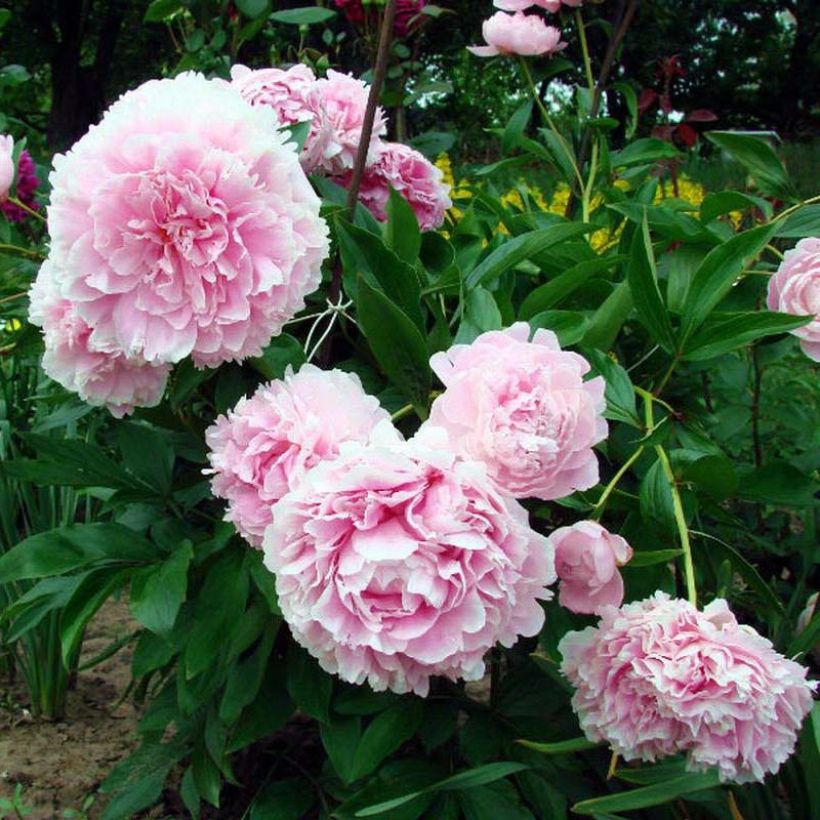

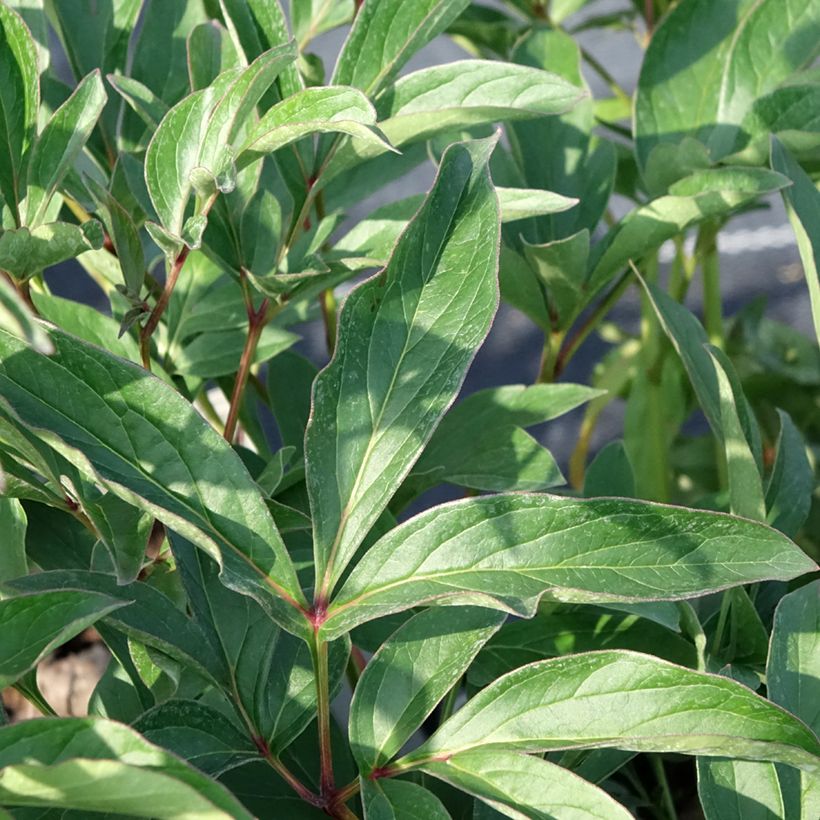

Flowering
Foliage
Plant habit
Botanical data
Paeonia
x lactiflora
Lady Orchid
Ranunculaceae
Chinese Peony, Common Garden Peony
Cultivar or hybrid
Other Herbaceous and hybrid Peonies
View all →Planting and care
The best time to plant peonies is in autumn. Install in a sunny or well-lit location, spaced 60 cm (24in) apart. They appreciate cold winters that promote dormancy and flower formation. The soil should be loose, deep, fertile, and moist. They need space and are sensitive to competition from other species. Prepare a hole 50 cm (20in) deep and mix organic fertiliser into your soil, partially backfill, place your plants inside, and cover with 6 cm (2in) of soil above the eyes. After planting, tamp down and water generously. Our bouquet tip: cut your peonies at sunrise when the buds start to colour. Don't delay in putting them in water.
Planting period
Intended location
Care
Planting & care advice
-
, onOrder confirmed
Reply from on Promesse de fleurs
Similar products
Haven't found what you were looking for?
Hardiness is the lowest winter temperature a plant can endure without suffering serious damage or even dying. However, hardiness is affected by location (a sheltered area, such as a patio), protection (winter cover) and soil type (hardiness is improved by well-drained soil).

Photo Sharing Terms & Conditions
In order to encourage gardeners to interact and share their experiences, Promesse de fleurs offers various media enabling content to be uploaded onto its Site - in particular via the ‘Photo sharing’ module.
The User agrees to refrain from:
- Posting any content that is illegal, prejudicial, insulting, racist, inciteful to hatred, revisionist, contrary to public decency, that infringes on privacy or on the privacy rights of third parties, in particular the publicity rights of persons and goods, intellectual property rights, or the right to privacy.
- Submitting content on behalf of a third party;
- Impersonate the identity of a third party and/or publish any personal information about a third party;
In general, the User undertakes to refrain from any unethical behaviour.
All Content (in particular text, comments, files, images, photos, videos, creative works, etc.), which may be subject to property or intellectual property rights, image or other private rights, shall remain the property of the User, subject to the limited rights granted by the terms of the licence granted by Promesse de fleurs as stated below. Users are at liberty to publish or not to publish such Content on the Site, notably via the ‘Photo Sharing’ facility, and accept that this Content shall be made public and freely accessible, notably on the Internet.
Users further acknowledge, undertake to have ,and guarantee that they hold all necessary rights and permissions to publish such material on the Site, in particular with regard to the legislation in force pertaining to any privacy, property, intellectual property, image, or contractual rights, or rights of any other nature. By publishing such Content on the Site, Users acknowledge accepting full liability as publishers of the Content within the meaning of the law, and grant Promesse de fleurs, free of charge, an inclusive, worldwide licence for the said Content for the entire duration of its publication, including all reproduction, representation, up/downloading, displaying, performing, transmission, and storage rights.
Users also grant permission for their name to be linked to the Content and accept that this link may not always be made available.
By engaging in posting material, Users consent to their Content becoming automatically accessible on the Internet, in particular on other sites and/or blogs and/or web pages of the Promesse de fleurs site, including in particular social pages and the Promesse de fleurs catalogue.
Users may secure the removal of entrusted content free of charge by issuing a simple request via our contact form.
The flowering period indicated on our website applies to countries and regions located in USDA zone 8 (France, the United Kingdom, Ireland, the Netherlands, etc.)
It will vary according to where you live:
- In zones 9 to 10 (Italy, Spain, Greece, etc.), flowering will occur about 2 to 4 weeks earlier.
- In zones 6 to 7 (Germany, Poland, Slovenia, and lower mountainous regions), flowering will be delayed by 2 to 3 weeks.
- In zone 5 (Central Europe, Scandinavia), blooming will be delayed by 3 to 5 weeks.
In temperate climates, pruning of spring-flowering shrubs (forsythia, spireas, etc.) should be done just after flowering.
Pruning of summer-flowering shrubs (Indian Lilac, Perovskia, etc.) can be done in winter or spring.
In cold regions as well as with frost-sensitive plants, avoid pruning too early when severe frosts may still occur.
The planting period indicated on our website applies to countries and regions located in USDA zone 8 (France, United Kingdom, Ireland, Netherlands).
It will vary according to where you live:
- In Mediterranean zones (Marseille, Madrid, Milan, etc.), autumn and winter are the best planting periods.
- In continental zones (Strasbourg, Munich, Vienna, etc.), delay planting by 2 to 3 weeks in spring and bring it forward by 2 to 4 weeks in autumn.
- In mountainous regions (the Alps, Pyrenees, Carpathians, etc.), it is best to plant in late spring (May-June) or late summer (August-September).
The harvesting period indicated on our website applies to countries and regions in USDA zone 8 (France, England, Ireland, the Netherlands).
In colder areas (Scandinavia, Poland, Austria...) fruit and vegetable harvests are likely to be delayed by 3-4 weeks.
In warmer areas (Italy, Spain, Greece, etc.), harvesting will probably take place earlier, depending on weather conditions.
The sowing periods indicated on our website apply to countries and regions within USDA Zone 8 (France, UK, Ireland, Netherlands).
In colder areas (Scandinavia, Poland, Austria...), delay any outdoor sowing by 3-4 weeks, or sow under glass.
In warmer climes (Italy, Spain, Greece, etc.), bring outdoor sowing forward by a few weeks.






























